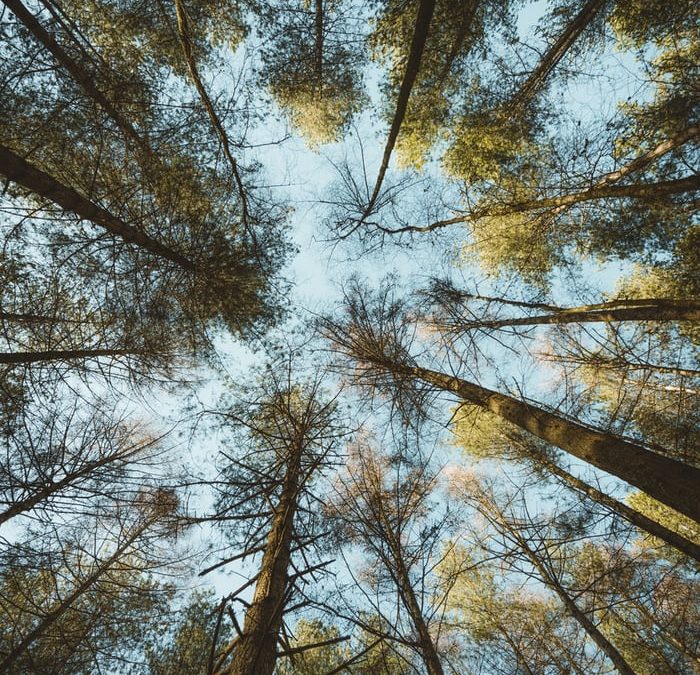I have suggested in prior articles that we all have circles of belonging that delineate who’s included in our in-groups and who represents the ‘other’ in our out-groups. Most of us divide the world into “us” and “them” based on a process of social categorization. In doing so, we tend to exaggerate both the differences between groups and the similarities of people in the same group. And eventually these categories become taken for granted and self-reinforcing.
I’m likely to not even be aware of them. But they drive my behaviors.
Recent tragic acts of injustice have led me, along with many others, to bring greater awareness to my largely taken-for-granted circles of belonging. It’s clear that in order to begin to do my part to build a more just society, I will need to re-draw those circles, including in them those I have consciously or unconsciously excluded.
But here’s the real challenge:
I haven’t just assigned people I know into these ingroups and outgroups. I have essentially adopted the identity of the groups I’ve categorized myself as belonging to. So, if I have categorized myself as a college-educated upper-middle-class white woman — with all of the responsibilities and privileges associated with this category — I will act in the ways I believe that group acts, and I’ll conform to the norms of that group. My identification with that group holds enormous emotional significance for me, even though I may hardly have any conscious awareness of it.
Re-drawing my circles of belonging will therefore require changing how I fundamentally see myself, changing my own identity. As I’ve written elsewhere, for a time, I will not know who I am. I will not know where I belong. I will feel rootless. It will be uncomfortable and disorienting.
Psychologists suggest that my needs to preserve the constancy of how I know myself — along with my discomfort with not knowing who I am — are so strong, that I’ll do almost anything to keep my current understanding of myself in place.
Unless a life jolt catapults me out of my current understanding of my world and transforms me.
Researchers at the University of North Carolina have named this phenomenon “post-traumatic growth.” Post-traumatic growth is different than resilience in the face of trauma. The big difference is transformation. In their words, “Resilience is when you get punched, stagger and then jump right back up. Post-traumatic growth is different: When you stand back up, you are transformed.”
Post-traumatic growth arises from a set of circumstances that cause me to confront questions I haven’t confronted before, or to see that prior understandings I had of the world and my relationship to it no longer apply.
The Gift of COVID-19
The COVID-19 outbreak and the losses it has brought have shattered my sense of the world as I knew it. People around me are experiencing losses related to work, finances, social interactions and family obligations, among others. Many of these losses are significant and traumatic. Futurists are predicting that just as the coronavirus fallout threatens to cause an economic recession, it’s also going to cause what they’re calling a “social recession”: a collapse in social networks, a fraying of social bonds that further unravel the longer we go without physical interaction.
But maybe that’s also the gift COVID-19 provides.
In fact, one of the most valuable contributions of COVID-19 may be the collapse of our traditional limited circles of belonging and the opportunity to redraw them.
The “post-traumatic growth” researchers reported that jolt survivors who experienced the most dramatic transformations found themselves driven by a radically expanded sense of empathy for the plight of others — suggesting expanded circles of inclusion.
The Opportunity
So, this time stuck at home, jolted out of what was normal and what was habitual, is the perfect opportunity for me to build new social ties or reawaken dormant ones I didn’t remember I had.
The current uncertainties require that I find new ways to make sense of the world. The input I can get via new social linkages may add considerable value to the input I get from close friends, colleagues or family members (read: prior circles of belonging), whose experiences are often redundant and provide little new information to make sense of what’s now going on around me. So, my challenge now is not to devalue my current circles, but to enlarge them, including new voices very different from my own.
The pandemic, recession and social unrest have ignited a broad sense of community, charity and a collective cry for justice. I have an unprecedented opportunity to take advantage of this renewed sense of “we,” — to not simply practice resilience by jumping back up and continuing as I was.
But rather, to stand back up and be transformed.


I agree with Marlena that the current uncertainties require that I find new ways to make sense of the world. However, I believe I still see some of the people around me in a waiting mode wondering how long it will be before things get back to normal. I wonder what it will take for the majority to recognize that it is never going back to the way it was.